PUTTING THE REAL IN REAL ESTATE
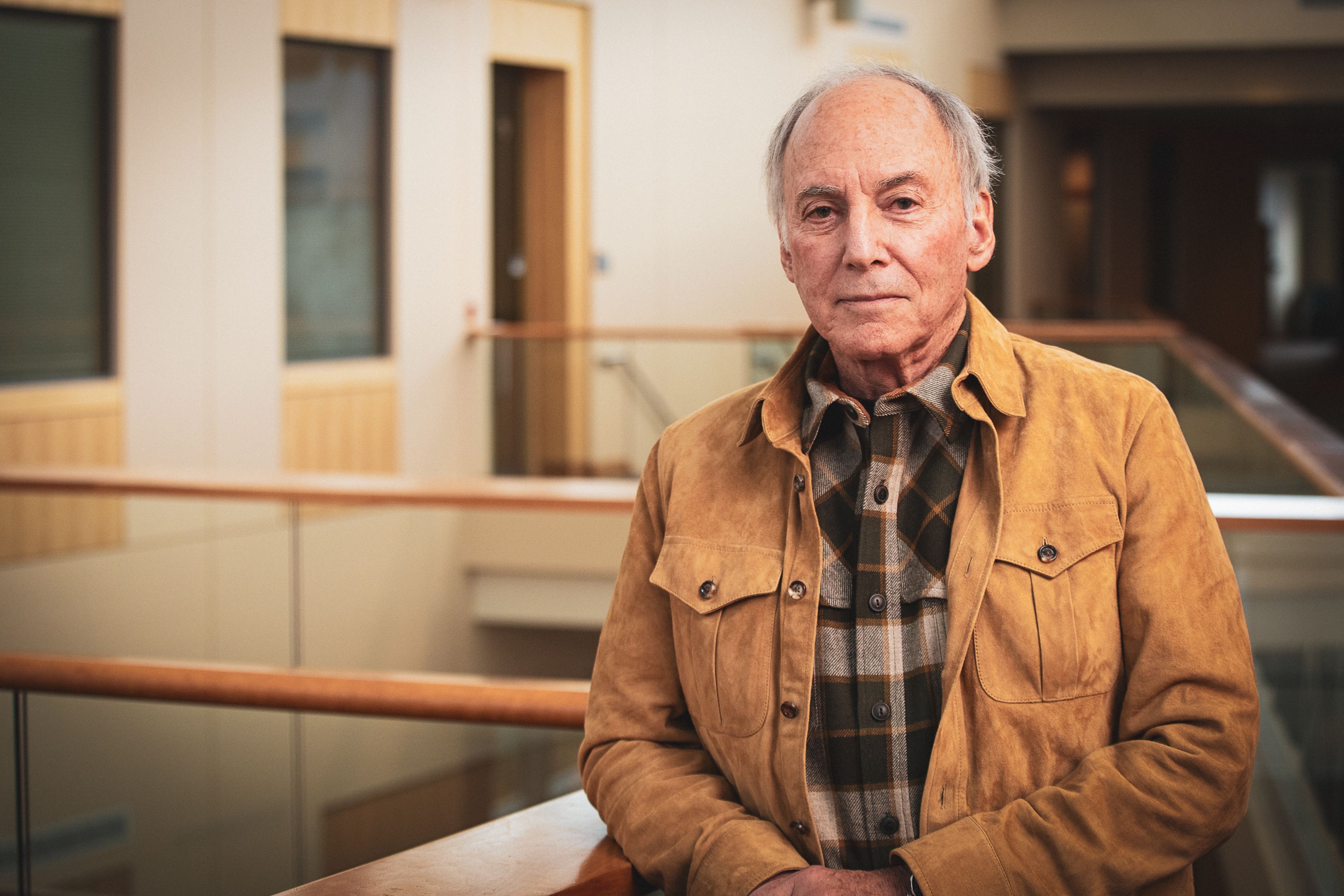
“THE ACADEMIC EDUCATION IS ABSOLUTELY ESSENTIAL, BUT IT’S JUST AS IMPORTANT TO BRING IN THE PRACTICAL SIDE OF REAL ESTATE TO SHOW STUDENTS HOW ALL OF THAT IS APPLIED.”
Marc Hagle
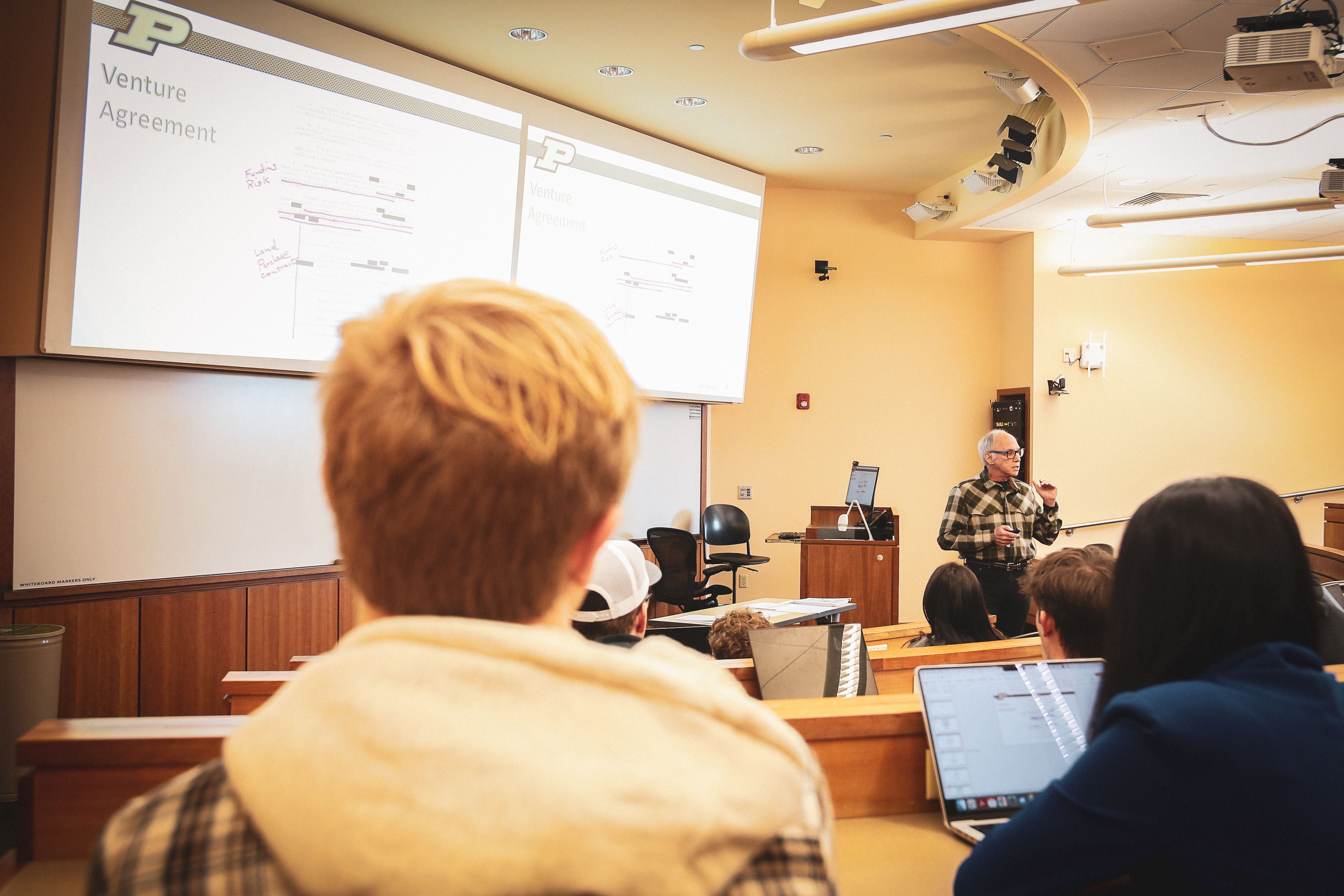
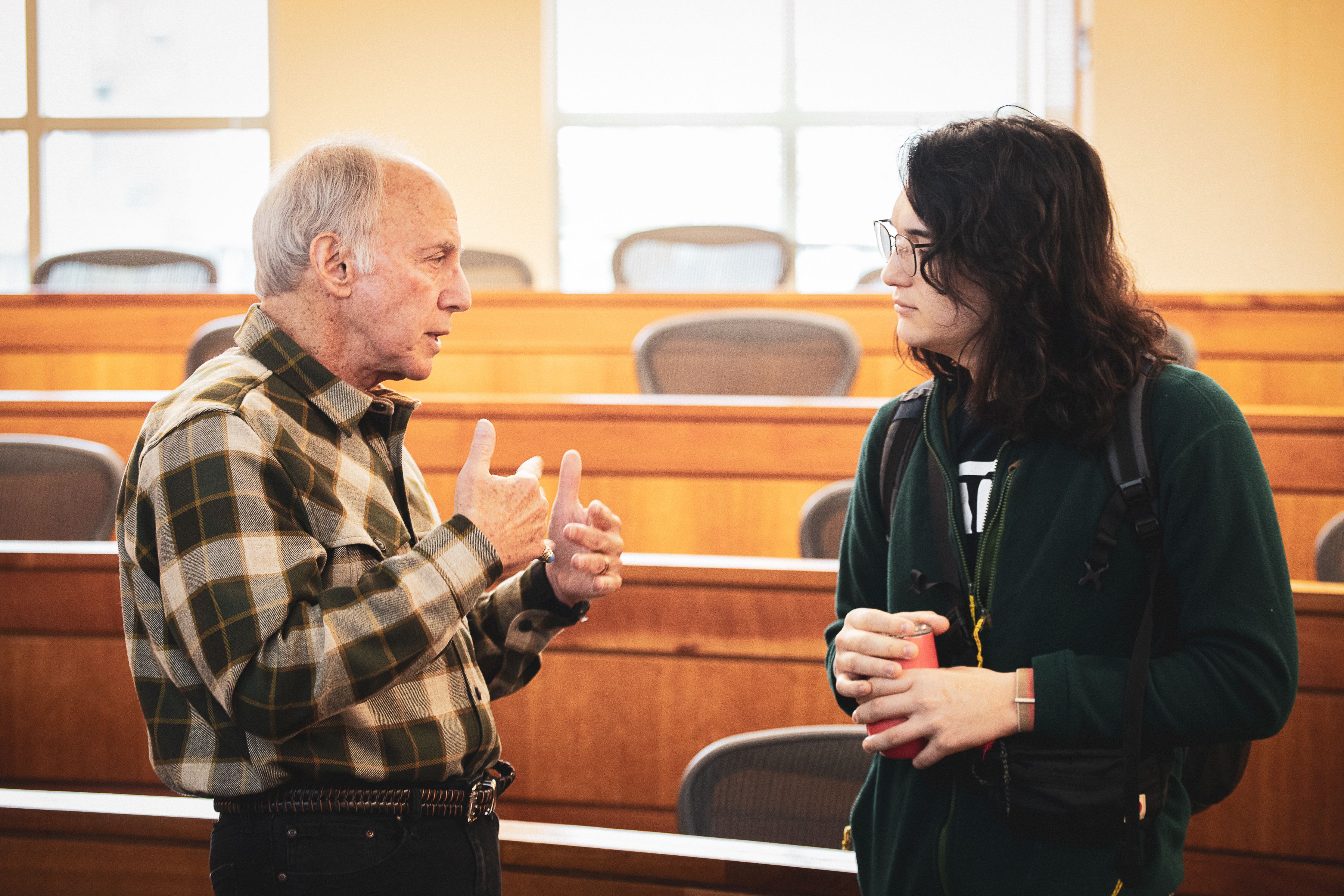
Celebrated Purdue alumnus Marc Hagle (ECE’71, MS M’72), president and CEO of Tricor International, has traveled the world and even been to space aboard a Blue Origin flight.
But on many Fridays, he can be found in Rawls Hall at the Mitchell E. Daniels, Jr. School of Business, where he’s sharing his expertise with students in the Dean V. White Real Estate Finance Program.
Hagle is a recurring guest lecturer in the program’s Real Estate Investment and Development course, aligning with his experience operating one of the most successful real estate development companies in Florida. He was approached about the opportunity following the construction of Marc and Sharon Hagle Hall, the home of Purdue Bands & Orchestras. Hagle and his wife made the $10 million lead gift for the building.
“I was involved with Purdue on a number of levels when I was asked about speaking to students in the real estate program,” Hagle says. “It took me all of 30 seconds to say yes. I’m at a stage in life right now where my wife and I believe very strongly in giving back. And I get excited when I come to campus. Purdue is an amazing place, and the energy it brings to anybody associated with it is incredible.”
Hagle brings that same energy to his work with students. “Marc starts every class with a mantra of a lesson he learned throughout his career,” says Mike Eriksen, a professor of economics and director of the White Real Estate Finance Program. “One of those lessons has been ‘Don’t let what you cannot do interfere with what you can do,’ which epitomizes the importance of finding a path of action to move forward. These shared insights and experiences give our students firsthand knowledge of the persistence needed to be successful.”
Hagle’s participation in the course also reflects the Daniels School’s commitment to combining world-class education with real-world lessons from industry professionals and partners. “What I’ve learned is that there are different kinds of education in real estate,” Hagle says. “The academic education is absolutely essential, but it’s just as important to bring in the practical side of it to show students how all of that is applied and how it’s thought about in the industry. That’s a big distinction.”
Hagle began his own journey in the real estate field after graduating from Purdue with a bachelor’s degree in electrical engineering in 1971 and a master’s degree in industrial administration in 1972.
“I was in my last term of graduate school when Disney opened in Florida, and I saw what was happening to the state’s economy and real estate market,” he says. “The opportunities were ripe, so I wrote my own case study using what I’d learned at Purdue. That’s when I decided that real estate was the right career choice for me.”
Today, Hagle brings case studies from his own company into the classroom, giving students a unique perspective of both the rewards and challenges associated with a career in the field.
“Marc’s life experiences gave us insights into negotiation strategies, risk mitigation and market analysis. I feel very privileged to have learned from him and have him as a part of my network.”
“I think it opens them up to the possibilities that could await them in real estate,” he says. “Looking back on my career, I never looked for the next deal because I knew I could never find it. But if I just stayed open and paid attention to what was going on in the market, the opportunities always presented themselves. I think the education you get at Purdue, and most particularly in this real estate program, gives students the ability to take advantage of those opportunities.”
In addition to his six lectures, Hagle is working with Eriksen on the course’s end-of-semester case competition focused on commercial real estate opportunities presented by the recently announced LEAP district in Lebanon, Indiana—a 9,000-acre economic development and innovation site midway between Indianapolis and the Discovery Park District at Purdue. He’ll also serve as a judge in the competition.
“We developed a case where the students are doing market research on where to locate a shopping center in the district,” Hagle says. “We take them through the process of how to analyze the market, how to find tenants, how to secure financing, and how to do all the other things associated with putting together a commercial development. I think it will be a rewarding challenge.”
Students give Hagle high marks for his contributions to the class. Olivia Tan, a junior majoring in actuarial science, applied statistics, and economics honors, says having Hagle as a guest lecturer has been enlightening and has encouraged her to pursue a career as a real estate analyst.
“He is so generous with his time, and his business shrewdness has allowed me to delve deeper into the fundamentals and intricacies of real estate,” she says. “The most valuable lesson that I learned is the importance of risk management. I’m really able to understand how to mitigate risks in terms of purchase agreements and being a developer in general.”
Arihant Talera, a junior majoring in finance and general management, echoes that praise.
“I firmly believe that experience is more valuable than theory, and Marc demonstrated this by always making it a point to discuss real-life experiences he had throughout his career, which taught me so much more about real estate than the textbooks ever could,” he says. “I asked him questions after each class, which he carefully answered without hesitation. He was even gracious enough to share important business documents and formats for financial models he’s created over the course of his career. For me, this is gold.”
“Having Marc as a lecturer in our class has been a rewarding experience that not a lot of people will have in their academic career,” says Anabel Richard, a senior finance major. “His life experiences gave us insights into negotiation strategies, risk mitigation, and market analysis. I feel very privileged to have learned from him and have him as a part of my network.”
Eriksen says those are just the types of outcomes he expected from Hagle’s involvement with the White Real Estate Finance Program. “Purdue students already come to class prepared, but students come with a different level of preparedness when someone like Marc is calling upon them,” Eriksen says. “Not only is real estate a great career, it also allows our students to transform the world where we live. The ability to experience the ‘real’ part of real estate is what makes lectures taught by Marc so essential to what the Daniels School of Business embodies.”
“Marc always made a point to discuss real-life experiences he had throughout his career, which taught me so much more about real estate than the textbooks ever could.”
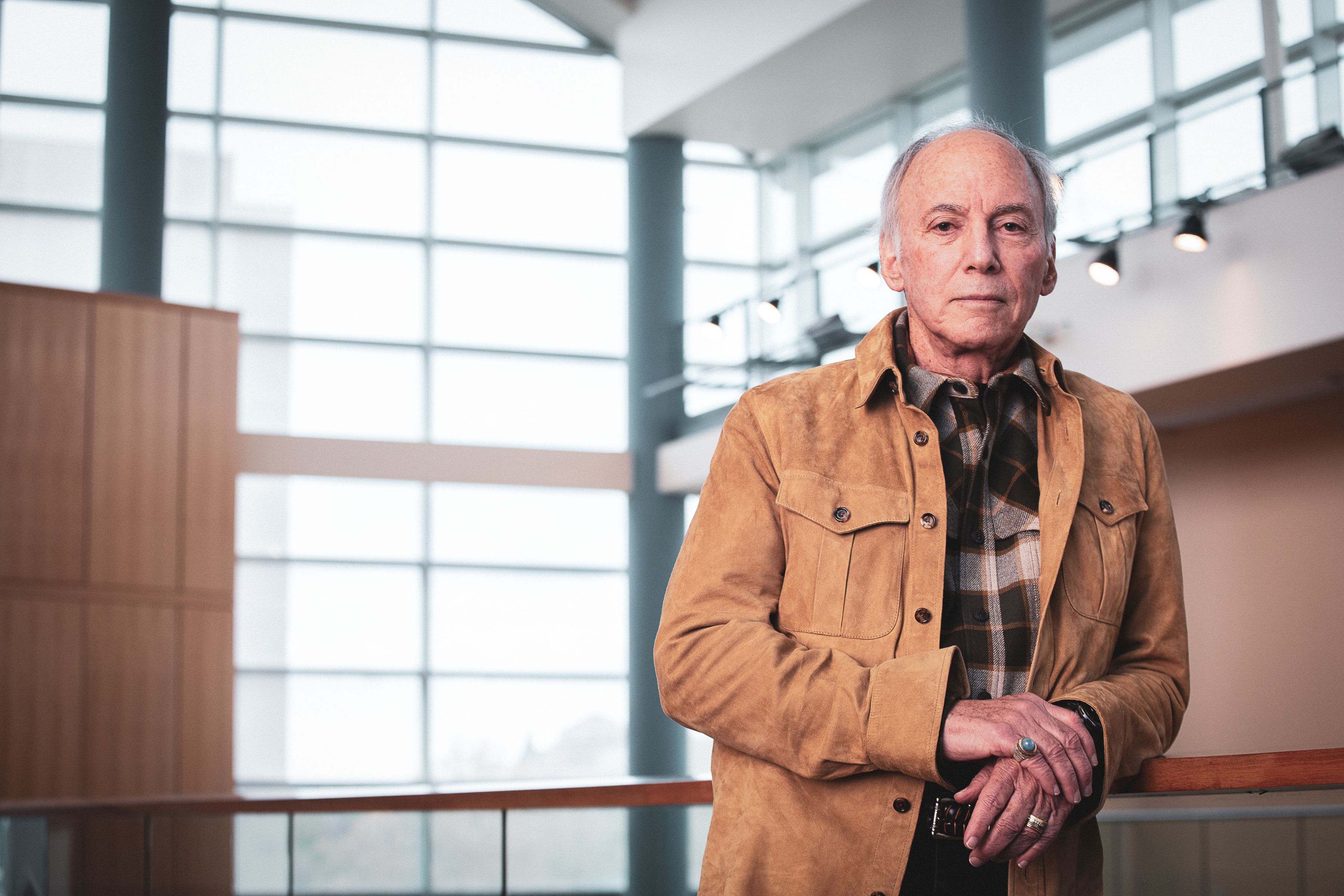
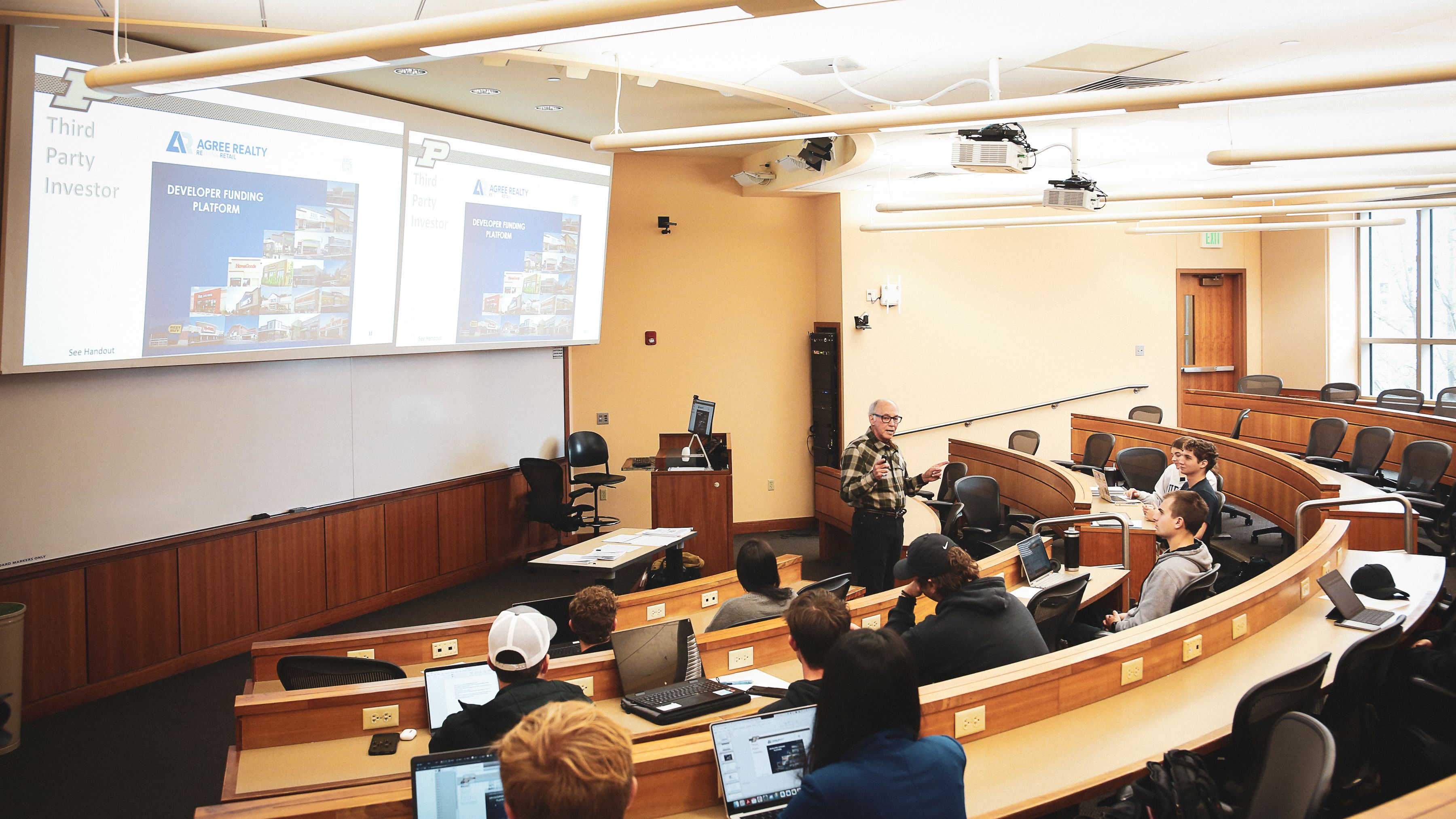
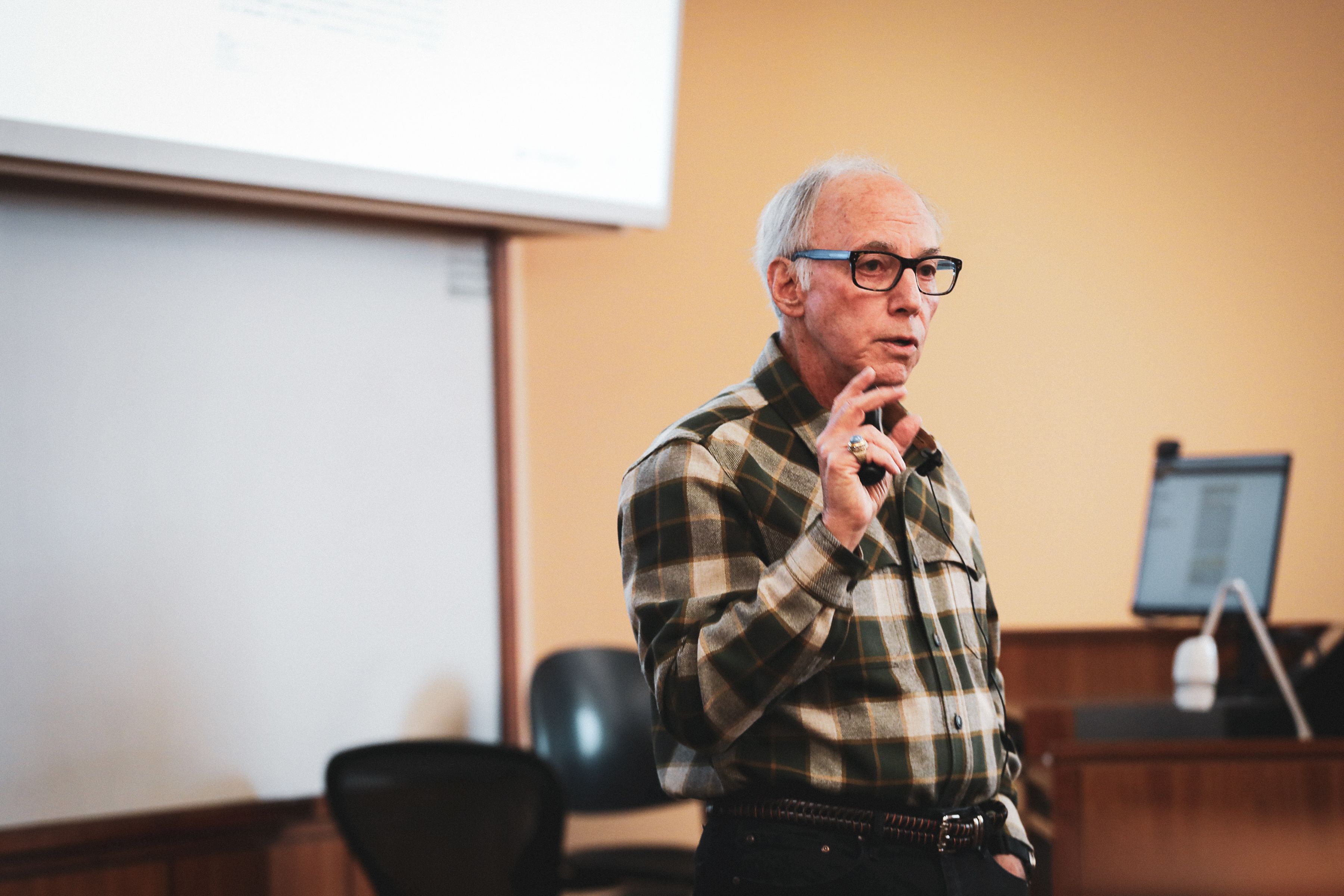
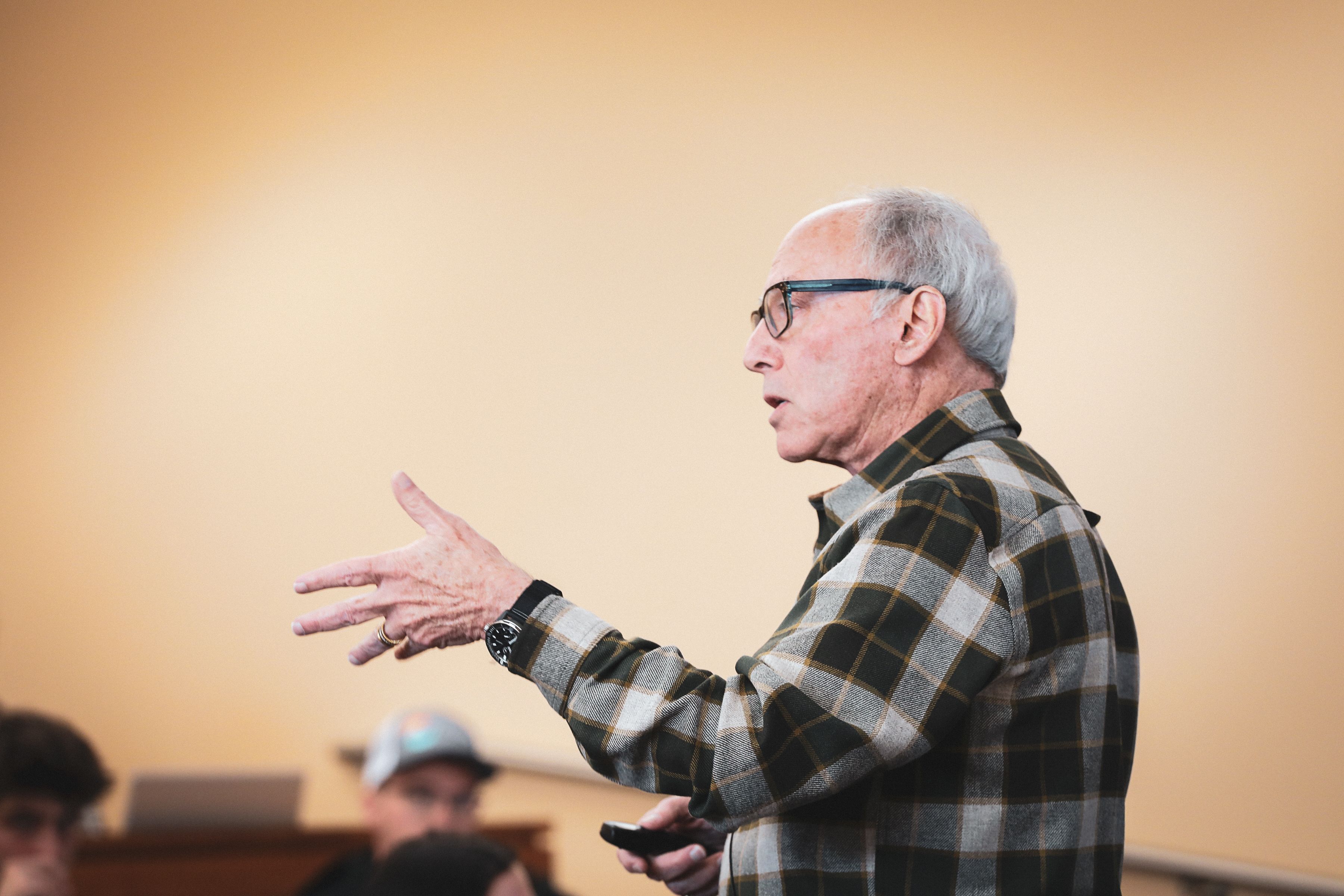
PLOTTING THE FUTURE
In addition to bringing in industry veterans like Marc Hagle, the Dean V. White Real Estate Finance Program makes a concerted effort to introduce students to more recent alumni who have pursued careers in the field. Among them is former Boilermaker football player Peyton Truitt (T’18, MS M’19).
Truitt is cofounder and CEO of plotr, a technology platform that allows commercial real estate developers to merge, enhance, and decipher the data they need to pick better sites, open more locations, and grow their business. He spoke to students in the Real Estate Investment and Development course and also took part in a young alumni panel.
“A first-person perspective helps tie in the fundamentals that are taught in school.”
“My father is in the real estate space in Lafayette, Indianapolis, and Fort Wayne, where he does commercial development and property management,” Truitt says. “So I grew up near real estate and was always interested in it as a career. Then I fell in love with data analytics, saw an opportunity to go down that route, and decided it was a great chance to combine both passions.”
Truitt says it’s important for students to hear from industry professionals instead of relying solely on traditional classroom learning.
“Real-world experiences are the greatest testament,” he says. “There are people out there every single day leveraging the things they have learned and then iterating on them as the market changes. The way business is done today, the way a deal is underwritten, is different than it was 20 years ago, so a first-person perspective helps tie in the fundamentals that are taught in school.”
His central message to students is that there are multiple ways to get into real estate.
“There’s sometimes a preconceived notion that it has to be done through a brokerage style career, but I’m an example of using Purdue’s great education to create a tech company, leverage new resources, and enter from a different angle,” Truitt says. “And I think that’s exciting for everybody who doesn’t want to follow a traditional real estate career path.”

“I GET EXCITED WHEN I COME TO CAMPUS. PURDUE IS AN AMAZING PLACE AND THE ENERGY IT BRINGS TO ANYBODY ASSOCIATED WITH IT IS INCREDIBLE.”
Marc Hagle
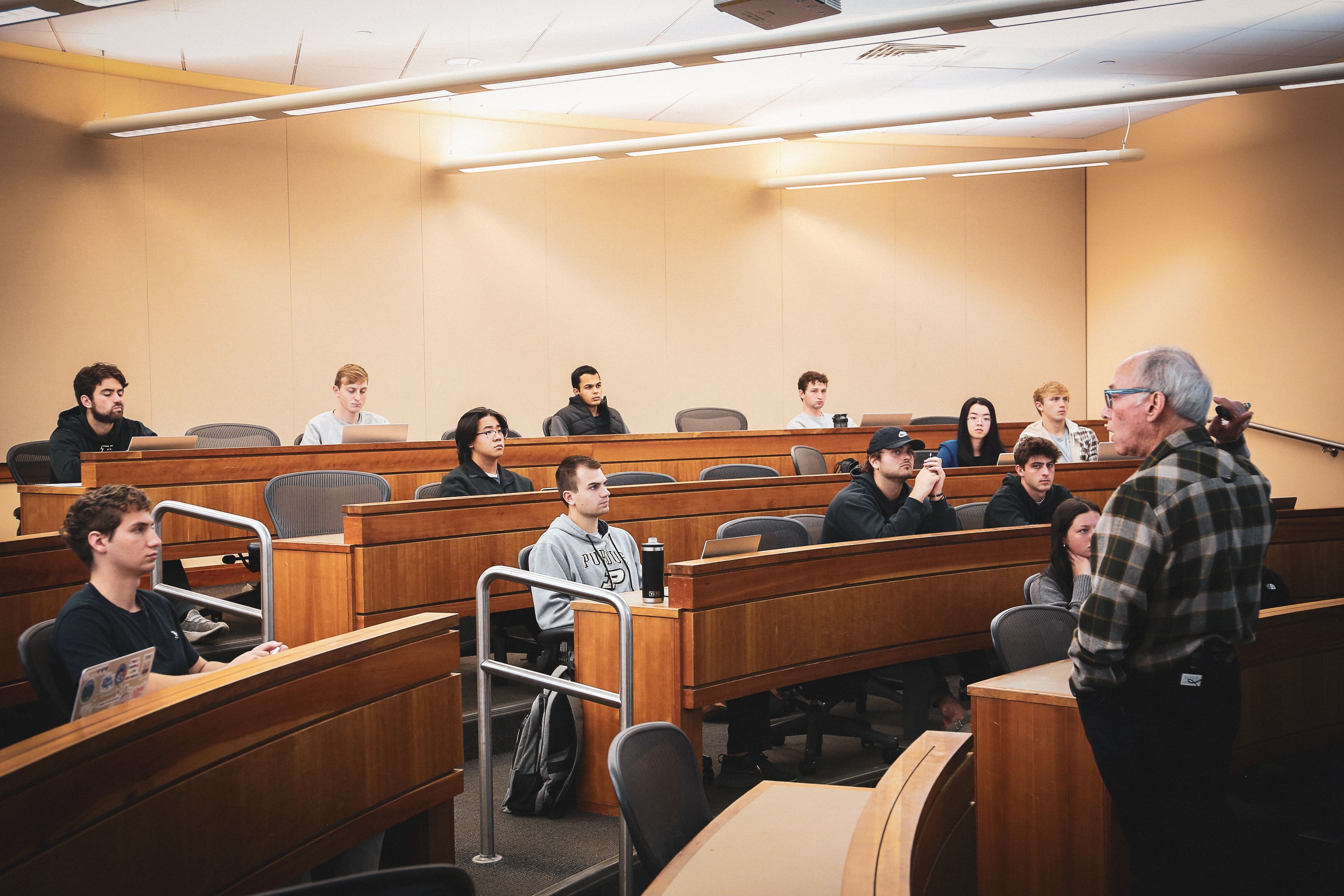
YOU CAN SHAPE BOILERMAKER TALENT!
Help support the Dean V. White Real Estate Finance program today.
Read more stories from this issue of Purdue Alumnus magazine.
